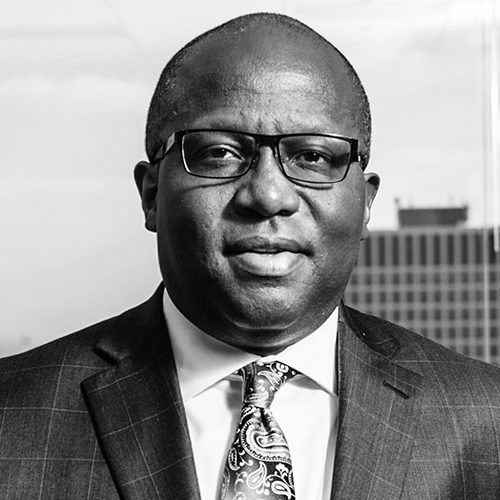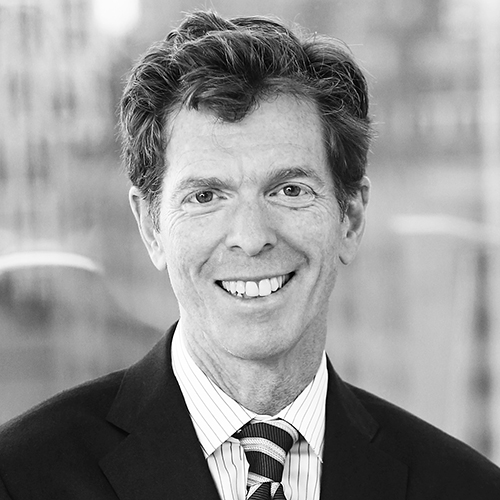Modern Counsel: You recently celebrated fifteen years with Continental. What was the department like when you arrived?
George Jurch: We had just purchased the Teves Group, which marked our first major venture outside of the rubber world. We had a very small staff of six lawyers, with most of them in Charlotte. Today, we stand around forty lawyers spread out in the Americas region.
MC: What’s been the most important part of your strategy as you’ve built your team over the years?
GJ: That we maintain a very high standard of quality and excellent practical legal advice.
MC: How do you set the tone for that standard?
GJ: It’s a winning, positive attitude. Everyone knows that I want the department to do the best we can in every transaction and in every litigation, and when that tone is set, people in the department have the same goal. We’re here to support the business, provide sound advice, and mitigate risk. We are passionate about excellent results.
Scaling for Need
How the Americas legal department has grown through the years
2000
4 lawyers
2006
10 lawyers
2015
40 lawyers with 20 additional professionals
MC: When you’re finding new talent, how do you make sure they’ll fit in well with this culture of excellence?
GJ: When we hire a new colleague, we have to do a good job of identifying and communicating what we’re looking for. What do we need in the department? Is it workflow management or new expertise? I interview everyone who comes into the department, whether they’re an assistant in Mexico, a paralegal, or an attorney.
MC: Where’s the value in that for you?
GJ: By the time I interview them, it’s not a question of talent. The skill set has been demonstrated. At that point, it’s about chemistry and fit. I need the team to function at the highest level with a passion for excellent results—and to work together to make Continental the best in the industry.
MC: Other than size, how else has your team changed?
GJ: We’ve had to adapt. We’re not just all in one city anymore. We’re in more than four US cities, three in Mexico, three in Brazil, and one in Ecuador. It takes a certain management style to run a department with multiple locations. We’ve grown, at times, through acquisition, so we’ve had to absorb people from other companies. We have to integrate them quickly and effectively.
MC: How do you foster this integration?
GJ: We want them to immediately feel like they are part of our team. We can learn many new things from them, so we listen to their ideas and best practices. We have people from a wide range of companies, such as Motorola, Veyance, and Siemens. As such, there are a lot of new ideas and best practices to add to our department’s potential if we can listen to them and implement what they know.
MC: As a leader, what do you have to do during or after integration to make sure your team doesn’t lose focus of their culture or mission?
GJ: Change is never easy, but I attempt to lead by example in this area. Everyone in the department has to see me fitting all of the puzzle pieces together so we’re using everyone’s skills to the best of their potential. We’ve adjusted our structure and responsibilities when people come into the team so we can take full advantage of our team’s skill set. Every acquisition has helped us improve our department.
“Everyone knows that I want the department to do the best we can in every transaction and in every litigation, and when that tone is set, people in the department have the same goal.”
MC: You recently hired your seventh IP lawyer. What motivated this decision?
GJ: After our acquisition of Motorola, our IP portfolio doubled, and we still had just one IP lawyer. That was 2006. In 2007, we closed with Siemens, and our IP portfolio doubled again. So in my original IP lawyer’s first year, his workload quadrupled. Our last six hires have been made to help us bring work in-house. There’s a cost advantage, but more importantly, we get to have that expertise and experience inside the company, and that makes for better lawyers and better overall business partners.
MC: How else do you respond to where the business is going?
GJ: We have to get out there and have conversations with the business folks. We have to know what’s going on so we can respond and plan. We sit in on many staff meetings for the business units and do all we can to understand the goals and objectives of the business, how they accomplish their goals, and what we can do to help. My people are required to do at least one plant visit per year, and I encourage them to travel and talk to the business so they can really understand what the business does and what they need to do to support and help the business achieve excellent results.
MC: In terms of the legal department, how does Continental plan for the future?
GJ: I have a lot of experienced lawyers in the department, and we try to leverage that experience. But we also know we have to make sure we have the right succession plan in place for the future. We’ve added younger lawyers recently, and I can see them seeking advice and knowledge from the veterans. Continental has an excellent formal mentoring program, and executive board members have mentored two of our top lawyers.
MC: Are you expecting any shifts in the industry?
GJ: In the automotive industry, things are going well for Continental, especially in the region, so the opportunities are more plentiful than they have been. On the other hand, we are seeing more recalls and regulations in the environment, so we’re working through those issues. We have very good relationships with our customers, and we have to actively watch what’s happening and adjust accordingly.
MC: What’s the most important facet to your department’s continued success?
GJ: For me, it’s about continuing that high standard of excellence. That’s what I need everyone in my department to think about every day when they come to work.


